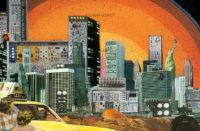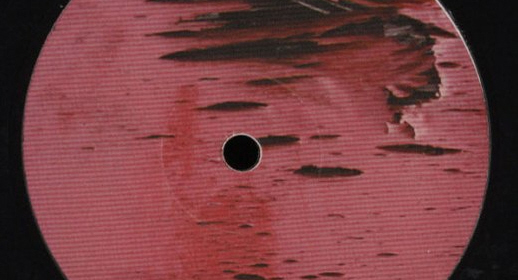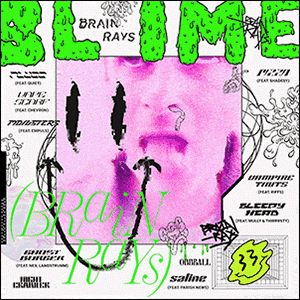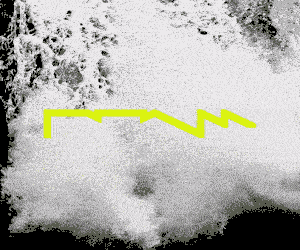Each of Unity’s elements, the percussion especially, arrives, states its case politely, then leaves, forming a pleasurable impression, but not a very memorable one. It’s also easy to imagine each part of any given song tidily fitting together on a quantized grid – maybe a bit too tidily.
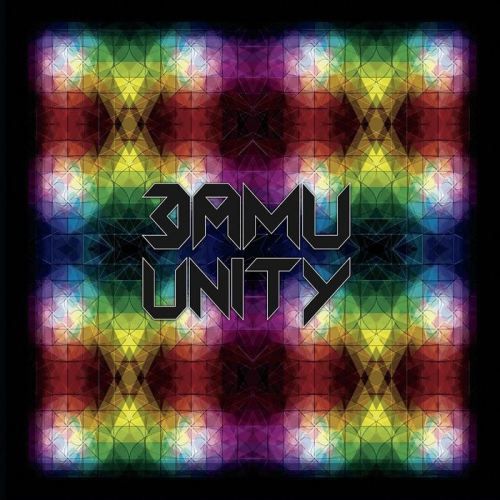
P. M. Goerner, in his review of Kuedo’s Severant, was correct to compare the two camps of dubsteppers to high school cliques of nerds and jocks. The nerds side with the “deep” producers, Goerner says, swearing by the more refined variants of dubstep and garage, those more suited to solitary headnodding than all-out moshing. The jocks, on the other hand, are the ones producing the brutish dross. You know it when you hear it – the total lack of subtlety, the punch-in-the-face drops, the fuel for vulgar YouTube comments and Electric Daisy Carnival ticket sales.
It’s a great analogy. One side is obsessive, largely ignored, and takes umbrage at any ignorance of their obsessions, while the other doesn’t care and gets all the chicks anyway. And though the nerds at Bassbin High trade Peverelist singles at lunch instead of Magic cards, they’ll fly off the handle just the same if you call it “techno.” The quarterback, Skrillex, and and his gang of boneheaded pals Datsik, Flux Pavilion, and Borgore (I could go on, but what’s the point?) torment the nerds not only because of the popularity gap – they’re also anathema because of how coarsely and excessively they’ve exploited an element of the nerds’ obsession, getting more and more attention each time they up the sickening ante. It’s like a linebacker dressing up as a nerd for Halloween, his costume complete with suspenders, broken glasses, and a pocket protector, and the cheerleaders fawning anyway, calling his getup cute. Outrageous, huh?
Now, I’m all for progression, but I can’t help but read into some “post-dubstep” efforts as horrified overreaches in the direction opposite brostep. One of the best examples, I think, is Darkstar’s North, which was a brave move into more overtly synthpop territory, but also a puzzling one that left some fans satisfied and just as many confused. I know that’s a cynical and unfair assumption to make, but it’s difficult not to imagine how great North could have been had they stayed closer to, say, “Need You.”
A disclaimer, though, before I get to Unity: I have been talking in pessimistic extremes. I do not think Unity is effete, or even necessarily a bad album, nor do I think it is merely an insecure retreat from its more popular classmates. But I do think it suffers from over-refinement and an excess of tact in places where rudeness would have done. In other words, Damu sometimes sides too squarely with the nerds, although I’m sure that was never his intention.
Just as you know what you’re getting into when someone says a song “sounds like you’re inside a Transformer, bro,” Damu’s tunes have their own unifying signifiers. To wit: icy 16th-note runs, toylike tinkles and Zomby blips, and that overused laser gun sound. These are arranged quite nicely across ‘Unity’s’ 60 or so minutes, usually as parts of sunny 2-step workouts, such as the appropriately titled “Waterfall of Light,” which marries woodblocks with a pleasing and increasingly complex array of rapid-fire synths. Or “Ether,” which essentially does the same thing minus the woodblocks, but with more triplets and at a slower tempo.
Another theme is the bass. Funny that some consider this bass music, as Unity doesn’t seem that interested in exploring the low end of the hearing spectrum. Sure, the bass is ample, but it’s usually polite and measured, and it rarely establishes itself outside boilerplate beat underpinning. Which is to say the basslines exist, but only perfunctorily, to justify the synth conniptions above. Now, there’s nothing wrong with synth conniptions, or even slight basslines (or lack thereof – “When Doves Cry,” anyone?), but as Unity rolls on with few breaks from the deluge, the tracks start to sound tinny, and worse, samey.
To tell the truth, most of Unity contains arrangements and timbres very close to those found on “Waterfall” and “Ether.” Sometimes choices of accompaniments mitigate this tedious consistency, like the steel drums on “L.O.V.E.” or the sober East London musings of Trim on “Ridin’ The Hype.” But “Weapon #3” and “Maths Is Fine For Sum” (which follow one another) are somehow the only songs that lack the sugary-sounding pads found everywhere else on Unity, which makes getting through an hour of music a toil.
This is frustrating. Damu is a much better songwriter than he is a producer, and there are so many catchy ideas on Unity (“Breathless,” “After Indigo,” “Plasm,” to name a few) that are indistinguishable because of the undistinguished way in which they are carried through. The unintentional nerdiness doesn’t help, either – few tracks here are punchy enough to demarcate themselves from their surroundings. Each of Unity’s elements, the percussion especially, arrives, states its case politely, then leaves, forming a pleasurable impression, but not a very memorable one. It’s also easy to imagine each part of any given song tidily fitting together on a quantized grid – maybe a bit too tidily. I’ve tried to convince myself otherwise, given the strength of the songwriting (which really is a lot better than that of most of Damu’s contemporaries), but after several listens to Unity I feel like all the surprises are gone. Which is really a shame.
Unity is out on Keysound.
[soundcloud url=”http://api.soundcloud.com/tracks/25887230″ params=”show_comments=true&auto_play=false&color=3e3e3e” width=”100%” height=”81″ ]






